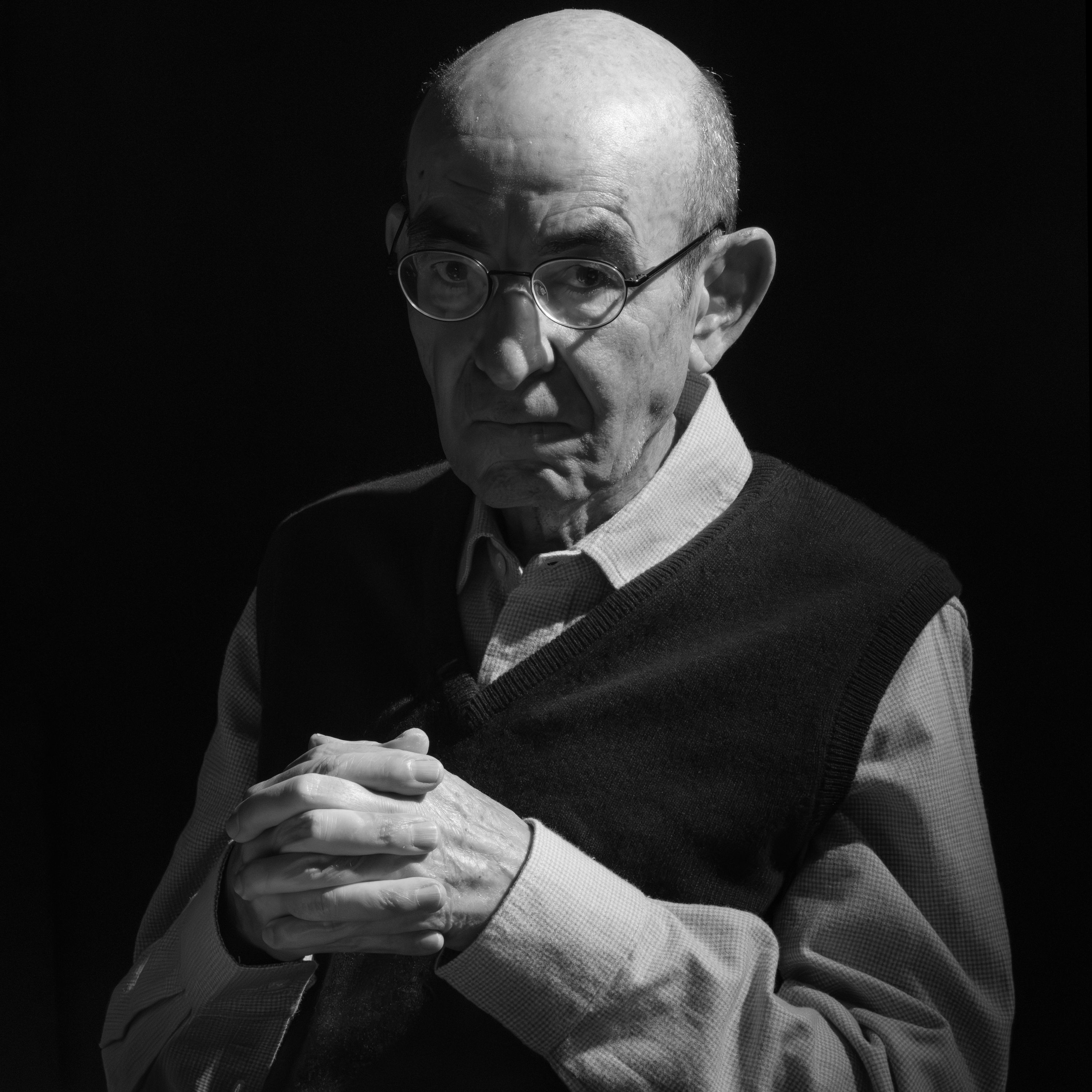ICE on Campus
Hamed Aleaziz, who covers immigration policy, lays out what their cases reveal about the latest immigration crackdown — and about this administration’s views on free speech.
Press play and read along
Transcript
Speaker 1 Every Vitamix blender has a story.
Speaker 2 I have a friend who's a big cook. Every time I go to her house, she's making something different with her Vitamix, and I was like, I need that.
Speaker 3 To make your perfect smoothie in the morning or to make your base for a minestra verde or potato leek soup.
Speaker 2 I can make things with it that I wouldn't be able to make with a regular blender because it does the job of multiple appliances and it actually has a sleekness to it that I like.
Speaker 1
Essential by design, built to last. Go to Vitamix.com to learn more.
That's Vitamix.com.
Speaker 5 From the New York Times, I'm Rachel Abrams. This is The Daily.
Speaker 5 Today, the story of three Columbia students targeted for deportation by the Trump administration and why immigration arrests are happening at universities across the country.
Speaker 5 My colleague Hamed Aliaziz on what these cases reveal about the latest immigration crackdown and this administration's views on free speech.
Speaker 5 It's Monday, March 31st.
Speaker 5 Hamed, it feels like you can't go more than a few days without hearing about another college campus or another college student that has been targeted by immigration officials.
Speaker 5 And one thing that seems to have been really making the rounds the last week is this video of a student at Tufts getting detained on the street by immigration agents.
Speaker 5 And it's kind of a shocking video. And her case feels like this larger pattern that we've been seeing recently with the targeting of students.
Speaker 5 And I want to talk to you about what is happening here and what your understanding is of this moment that we are in.
Speaker 6 Yeah, definitely. We saw at the beginning of the Trump administration a real focus on cracking down and arresting undocumented immigrants in the country, particularly those with criminal histories.
Speaker 6 And at the same time, making a note that if you're undocumented in this country, we're going to come find you, we're going to come get you, and we're going to remove you from America.
Speaker 6 But what's happening now is targeting of people who were legally in the country. They were here with student visas, in some cases with green cards.
Speaker 6 The Trump administration is looking to target individuals that they believe are spreading messages that they disagree with and they believe that are counter to the foreign policy interests of the United States.
Speaker 6 And this all actually starts with a talk by President Trump during his campaign. During that time, he was watching these protests at Columbia.
Speaker 7 And when I'm president, we will not allow our colleges to be taken over by violent radicals.
Speaker 6 He said that if there were any international students involved, their visas should be revoked and they should be removed from the United States.
Speaker 7 If you come here from another country and try to bring jihadism or anti-Americanism or anti-Semitism to our campuses, we will immediately deport you. You'll be out of that school.
Speaker 6 And when he comes into office, quickly in those first few days where there's a dizzying number of executive orders, he deputizes the Department of Justice and the Department of Homeland Security to create a task force combating anti-Semitism and targeting college campuses as places of focus.
Speaker 6 And we weren't clear how it was all going to play out. And in recent weeks, we've seen the Trump administration start to use those ideas to target students on college campuses.
Speaker 6 And I've been covering three of those cases involving students at Columbia that taken together, I think, paint a clearer picture of what the Trump administration is up to.
Speaker 5 I have to assume that one of those cases is one of the first cases that we saw come out of all of this, the case of Mahmoud Khalil, the former Columbia student who was arrested on campus housing in early March.
Speaker 6 Definitely. His case was a massive news story when it first happened in early March, and people were trying to figure out why he was picked up.
Speaker 6 We learned from sources that actually Secretary of State Rubio had issued a memo designating two people as deportable because of their protest activity.
Speaker 6 And one of those people was Mahmoud Khalil, a very visible protester on Columbia's campus.
Speaker 6
You're going to be under arrest. So turn around, turn around, turn around, turn around, turn around.
He was arrested on March 8th at his Columbia University apartment complex. He's not resisting.
Speaker 6 His wife actually videotaped the arrest and in the video you can see the plainclothes officers telling Mr. Khalil that he's going to be arrested, that they're going to be taking him away.
Speaker 6 You're going to have to come with us.
Speaker 6 At the same time, Mr. Khalil is telling his wife.
Speaker 6 Just call his lawyer.
Speaker 8 Yeah, they just like handcuffed him and took him.
Speaker 6 I don't know what to do.
Speaker 6 He was picked up and sent to Louisiana, where he was detained in an ICE detention facility. And that's really striking because Khalil is not here on visa.
Speaker 6 He actually has permanent residency and a green card.
Speaker 5 Can they do that? I mean, can they detain a green card holder? I remember when we first learned about this case, a lot of people, myself included, thought the answer was no.
Speaker 6
Green card holders can be detained. After you receive your green card, you have to wait a certain number of years to receive your U.S.
citizenship.
Speaker 6 But during that time, you need to remain in good standing in the United States.
Speaker 6 And one of the things that oftentimes green card holders will be picked up by ICE for is committing certain crimes, you know, more serious crimes.
Speaker 6
In this case, obviously, there is no crime that's been pointed to by the U.S. government.
Instead, it's this provision cited by Secretary of State Rubio.
Speaker 5 And what is the legal ground that Rubio is citing?
Speaker 6 They arrested him under this provision in the immigration law that allows a Secretary of State to deem someone deportable if their continued presence in the United States undermines U.S.
Speaker 6
foreign policy. And in the case of Mr.
Khalil,
Speaker 6 they say that his involvement in protests at Columbia University was part of this anti-Semitic activity, and this undermines U.S. foreign policy interests of combating anti-Semitism across the world.
Speaker 5 What they're referring to in some of these accusations seems to be a speech issue.
Speaker 5 I mean, I know they're talking about things that sound like terrorism, but they're really criticizing, it seems, his protest activity.
Speaker 5 And one thing I still don't quite understand about his story is this question of freedom of speech.
Speaker 5 Like, even though he's not a citizen, is he still entitled to the protections of a citizen because he's in this country?
Speaker 6 Aaron Powell, it's complicated.
Speaker 6 The Supreme Court has said that non-citizens do have the right to freedom of speech under the First Amendment, but the government has an immense amount of power to remove immigrants from the United States.
Speaker 6 And ultimately, anything outside of being a U.S. citizen is a privilege that can be revoked by the federal government.
Speaker 6 And in this case, the Trump administration is trying to say that actions that would otherwise be protected in the First Amendment, like protest activity on a college campus, could merit deportation.
Speaker 5 So basically, no, you don't ultimately have freedom of speech.
Speaker 6 Yeah, it's clear that they're targeting people for this type of speech, including Mr. Khalil,
Speaker 6 using every resource possible to pick him up and arrest him. Recently, they added allegations in his immigration case to try to deport him, saying saying that he had not disclosed past work.
Speaker 5
Right. It feels like they're basically trying everything to send a message.
And moreover, it kind of feels like his case is maybe potentially the beginning of something.
Speaker 6 Definitely. It feels like the beginning of this targeting of international students across the United States.
Speaker 6 And we quickly learned that there was another case of an international student at Columbia, but this was a student who was not someone who was as prominent as Mr. Khalil.
Speaker 5 Tell me about that case.
Speaker 6 Her name is Ranjani Srinivasan, and she's a PhD student here on a student visa from India.
Speaker 6 And my colleague, Luis Ferre, gets on the phone with her and starts talking to her about her story and what she experienced.
Speaker 6 You know, she had received a email in early March from the State Department saying that her visa was revoked and she's trying to figure out what's going on with her status in the United States.
Speaker 6 It's important to note that for international students here that's a very serious issue and so there's a lot of stress involved with that. Around that time ICE comes to her door.
Speaker 9 Well is does Ranjani live here?
Speaker 6 Her roommate actually is at the door and starts a recording.
Speaker 8 I do not consent to answering any questions, but have a good day.
Speaker 9
Hey, Brunjani, if this is you, listen, we were here yesterday, we're here today, we're going to be here tonight, tomorrow. You're probably scared.
If you are, I get it.
Speaker 6 And they're seeking to pick her up.
Speaker 9 The reality is your visa was revoked, okay?
Speaker 9 You are now amenable to removal proceedings. Okay, if you'd like to have an interview.
Speaker 5 Does she know why ICE agents are at her door? Does she know why they're trying to get her
Speaker 6 she doesn't but eventually she realizes that she's likely being targeted because she was swept up during the increase in protests on columbia's campus she had been arrested uh amongst another group of protesters in the area but she says she was arrested during a time when she was trying to get home she was working her way back to her house and she was picked up by police at the time now those charges were eventually dropped, so she didn't really make much of a deal of it at the time.
Speaker 6
And she didn't disclose it on her visa paperwork. But ultimately, the U.S.
government cites that as the reason for her visa being revoked.
Speaker 5 Okay, wait, so to be clear, was she protesting that day? Like, was she a protester at all?
Speaker 6 She says that this was really merely her trying to get home and getting through this crowd and the police come and arrest her. She described herself as a lazy protester.
Speaker 6 She did post stuff online in support of pro-Palestine efforts, but that was the extent of it. And she sees what's happened to Mr.
Speaker 6
Khalil and doesn't want to be swept up by ICE and targeted for detention in a ICE detention center. And she decides to leave the country to go to Canada and to avoid all of that.
She self-deports.
Speaker 5 That self-deportation, that actually feels like it's one of the administration's goals here, right? Like getting people to flee on their own.
Speaker 6 Definitely. Self-deportation is a major goal of the Trump administration.
Speaker 6 There is no feasible way for them to deport millions of people without major numbers of immigrants self-deporting, leaving the country, boosting to those numbers that President Trump has said he will hit.
Speaker 6
This is something that is constantly talked about with the Trump administration, which is leave before we come and find you. And in this case, it seemed to have worked.
She saw what happened to Mr.
Speaker 6 Khalil and did not want to end up like him, being sent to nice detention center.
Speaker 6 This case shows us that the government is claiming these broad deportation powers and attempting to use those powers to deport international students here to study in the United States.
Speaker 6 Then we heard about another case, a third case involving another university student that really surprised people who have been following immigration and immigration enforcement for years.
Speaker 5 We'll be right back.
Speaker 10 This podcast is supported by Planned Parenthood Federation of America. As a listener of The Daily, we know you want the facts.
Speaker 10 Fact one, lawmakers are making it harder for Americans to get health care.
Speaker 10 Two, a new policy blocks patients from using their Medicaid insurance for life-saving care at Planned Parenthood health centers.
Speaker 10 Cancers will go undetected, STIs will go untreated, and patients won't have the care they need. Three, Planned Parenthood will not back down, but they need your help.
Speaker 10 Donate at plannedparenthood.org slash defend.
Speaker 1 This podcast is supported by AT ⁇ T. America's first network is also its fastest and most reliable.
Speaker 1 Based on Rootmetrics United States Root Score Report 1H2025, tested with best commercially available smartphones on three national mobile networks across all available network types, your experiences may vary.
Speaker 1
Root Metrics rankings are not an endorsement of AT ⁇ T. When you compare, There's no comparison.
AT ⁇ T.
Speaker 11
Don't just imagine a better future. Start investing in one with Betterment.
Whether it's saving for today or building wealth for tomorrow, we help people in small businesses put their money to work.
Speaker 11 We automate to make saving simpler. We optimize to make investing smarter.
Speaker 10 We build innovative technology backed by financial experts.
Speaker 11
For anyone who's ever said, I think I can do better. So be invested in yourself.
Be invested in your business. Be invested in better with betterment.
Get started at betterment.com.
Speaker 11 Investing involves risk. Performance not guaranteed.
Speaker 5 Ahmed, you've just explained these two cases that help us understand how the administration is really testing all these new theories about how to get people out of the country.
Speaker 5 Tell us about that third case you just mentioned.
Speaker 6
Definitely. This third case, it's a 21-year-old student, Yoon So Chung, who grew up in America, essentially.
She was born in Korea, but she came to the United States at age seven.
Speaker 6
And she lived her life in America. Her whole community is here.
Her family is here. Her parents are here.
Speaker 6 She went through high school in America where she became a valedictorian.
Speaker 6
Essentially, her home is the United States. And that is something that her lawyers really emphasized in their lawsuit against the U.S.
government.
Speaker 5 This isn't someone who came here specifically to go to school and then plans to head back home.
Speaker 6 Exactly. I think it's significant for, for
Speaker 6
emotional reasons because she has such deep ties to this country. She went to high school in the United States.
She has a network in the United States.
Speaker 6 But I think more importantly, it undercuts the Trump administration's argument with these arrests.
Speaker 6 The Trump administration has said that these people who are coming to study in the United States are guests in our country.
Speaker 6 And while they're here, it's not appropriate for them to cause a ruckus on our campuses and cause conflict.
Speaker 6 But in this case, Chung is not, for all intents and purposes, a temporary guest who just came to the United States. She's been here since she was seven years old.
Speaker 5 So how does it become clear that she's being targeted? Can you kind of walk us through her story a little bit?
Speaker 6 Yeah, so earlier this month in March, she attended a sit-in on Columbia University's campus, and she was arrested by police alongside other college protesters.
Speaker 6 And soon after that, ICE shows up to her parents' house. Around the same time that the ICE officer showed up to Chung's house, she received a text message from an unknown number
Speaker 6 and it said, quote, this is Audrey from the police. My job is to reach out to you and see if you have any questions about your recent arrests and the process going forward.
Speaker 6 A federal prosecutor speaks with her attorney, saying that the State Department has revoked her status and that the government is trying to find her and detain her.
Speaker 6 They're really using all the resources that the government has to try to arrest her. I think that's a really important point to make because, look, ICE arrests are really difficult.
Speaker 6 They have to expend a lot of resources and research and surveillance to know when people are going to be around to show up, to arrest them, and take them away.
Speaker 6 They're using all these various levers of government power to try to locate her.
Speaker 6 And that's a lot of resources for a government that's incredibly strained for resources and trying to reach these high numbers of deportations. Every resource matters.
Speaker 6 And they're using it on a college student who's been in the country since she was seven years old.
Speaker 5 So where is she now?
Speaker 6 We don't know. Her lawyers have not told us where she is, but they say that she is in the United States.
Speaker 5 Because she's concerned about having her location disclosed.
Speaker 6 That is a fair assumption.
Speaker 5 Right. And it feels worth noting, actually, that these aggressive tactics kind of come back to this whole messaging element of the administration's tactic here.
Speaker 5 Like they're trying to send a message that we will come for you, we will find you.
Speaker 5 And that also helps kind of put the fear into people that would lead them to self-deport, which is another huge element to the administration's approach to all of this.
Speaker 5 And it feels like this is all much broader than just what's happening at Columbia.
Speaker 6 Totally. We've seen ICE target international students across the country, including at Georgetown,
Speaker 6 of course, with the case at Tufts, with the Turkish international student, and at Cornell as well.
Speaker 6 And it's becoming pretty clear that this is a part of the Trump administration's new phase of their immigration crackdown.
Speaker 12 Let me just send this message out. If you apply for a visa to enter the United States and be a student, and you tell me...
Speaker 6 Marco Rubio, Trump's Secretary of State, has spoken very publicly about this new phase.
Speaker 12 We gave you a visa to come and study. and get a degree, not to become a social activist that tears up our university campuses.
Speaker 5 Is there some advantage to targeting students in particular or people who are here on student visas or green cards?
Speaker 6 Well,
Speaker 6
people here on student visas are in regular contact with the U.S. government.
They are constantly updating their information with the U.S. government to remain in status.
Speaker 6 This is something that they do willingly and proactively because they want to pursue their education in the United States. So there is a whole wealth of information about where these people are.
Speaker 6 You can just look at where they're studying, right?
Speaker 6 I mean, they are much easier to find than compared to undocumented immigrants who oftentimes will remain under the radar and try to avoid interacting with a government for fear of being picked up by ICE and arrested.
Speaker 6 These are individuals who have shared a lot of information with the U.S. government.
Speaker 6 And I think in many ways it confirms a lot of fears that people have that when you share so much information with the government, you inevitably become easier to find and detain.
Speaker 5 It really feels ironic the way that you're explaining it that the people that are most deportable are actually people that are in the system, following the rules, going through the procedures, as opposed to people who are undocumented.
Speaker 5 It also feels worth saying that these schools where ICE is targeting students, they don't really seem to be going out of their way to fight it.
Speaker 6 This is a new test for them. This is not something that they've seen in the past where you have ICE officers on campuses.
Speaker 6 It's important to note here that previous to the Trump administration, there were actually guidelines in place for ICE to not enforce on campuses. So this is a new front in that respect.
Speaker 6 And at the the same time, universities are under immense pressure from the Trump administration, targeting their funding, targeting their practices. Colombia, in particular, has been under attack.
Speaker 6 So when it comes to these cases, they're in many ways taking a hands-off approach.
Speaker 5 At this point, does it feel like the Trump administration's arrest of these students will hold up an immigration court?
Speaker 5 Like basically, are these laws, which in some cases are arcane or kind of obscure, do you think that that those will be compelling enough?
Speaker 6 So two things. One, the State Department has wide powers to revoke people's student visas, and that's going to be a particularly difficult case for those individuals who are here.
Speaker 6 simply on student visas, trying to remain in the United States. It's going to be an uphill battle in immigration court.
Speaker 6 But when it comes to the provision being used against the green card holders, this idea that the Secretary of State can deem someone deportable, remove them from the United States because they undermine foreign policy interests, that's been tested before in immigration courts.
Speaker 6
And actually, the Board of Immigration Appeals at the time in the 90s upheld the U.S. government's efforts to deport a high-ranking Mexican official to Mexico.
But that was a very different case.
Speaker 6 This is a very different situation, so it's unclear.
Speaker 5 I mean, that's actually something that I wanted to ask you about, because we've talked a lot so far about how some of these cases feel surprising or extreme, but I just want to make sure I understand
Speaker 5 how do these cases fit into what we've seen historically?
Speaker 6 Yeah, there have been several times in American history where the government has been much tougher on immigration, but you don't have to look back that far.
Speaker 6 You can point to this time after 9-11, this era where DHS was born in the wake of that terrorist attack.
Speaker 6 We saw at that time targeting of Muslim immigrants who were here on student visas, who were swept up in this increased immigration enforcement because there was a real fear.
Speaker 6 around Muslim immigrants who were here on visas because of course the 9-11 attackers had arrived as well on visas and I think it also fits into this context of the government talking about these people as potential threats right I mean we see that the White House has said that Khalil is aligned with Hamas a terrorist group and we've seen them call Srinivasan a terrorist sympathizer.
Speaker 6 We're seeing almost the same type of language being used to describe the immigrants who are being picked up right now as we saw during that time in the post-9-11 era.
Speaker 5 I realize that the government might claim that the people it is targeting, in some cases at least, are supporting terrorist activity.
Speaker 5 And so it's totally fair to use the language of the 9-11 terrorists.
Speaker 5 But it really feels like a huge stretch to say that somebody who wrote an op-ed is comparable to somebody who flies a plane into the World Trade Center.
Speaker 5 And so it can't help but feel like this is not as much about terrorism as it is about free speech.
Speaker 5 And if that is the case, and if you agree with that premise, it feels like we are escalating in one direction.
Speaker 5 And I am curious what you think that that crackdown looks like to you in the next four years.
Speaker 6 Yeah, already people here on legal status who have green cards are certainly terrified. There's a lot of uncertainty amongst green card holders about what these cases mean for themselves.
Speaker 6 We're not even 100 days in, and we're already seeing green card holders picked up and these types of incredibly powerful images of students arrested on their campuses.
Speaker 6 And as far as what comes next,
Speaker 6 I think it's fair to say that anything is possible, right? We saw in the first administration there was an effort to expand denaturalization of U.S. citizens.
Speaker 6 I think we can expect more of those types of efforts and others that we're not aware of at this moment.
Speaker 5 Hamed, thank you so much for your time.
Speaker 6 Thank you for having me.
Speaker 5 We'll be right back.
Speaker 1
We've all done it. Stock our fridge with good intentions, only to sacrifice nutrition for convenience.
Keep your body and mind nourished with whole-body mealshakes from cachava.
Speaker 1
It's got 25 grams of protein, 6 grams of fiber, greens, and so much more. But it actually tastes delicious.
Try one of Kachava's indulgent flavors today.
Speaker 1
Shop now through December 2nd to get 30% off your first purchase of two or more bags. Go to cachava.com and use code NYT.
That's K-A-C-H-A-V-A.com code NYT.
Speaker 4
October brings it all. Halloween parties, tailgates, crisp fall nights.
At Total Wine and Moore, you'll find just what you need for them all. Mixing up something spooky?
Speaker 4 Total Wine and More is your cocktail central for all your Halloween concoctions.
Speaker 4 With the lowest prices for over 30 years, you'll always find what you love and love what you find only at Total Wine and more. Curbside pickup and delivery available in most areas.
Speaker 4
See TotalWine.com for details. Spirits not sold in Virginia and North Carolina.
Drink responsibly. B21.
Speaker 13
Amazon has everything for everyone on your list. Like your Uncle Ricky, who ruined every single one of your wedding photos because his fly was open.
Get him a three-pack of new underpants.
Speaker 13 And with Amazon Black Friday week starting November 20th, you can save up to 40% on the gifts everyone wants, like the latest toys and housewares,
Speaker 13 and the gifts they need, like underpants.
Speaker 6 And Ricky, wear them, please.
Speaker 5 Here's what else you need to know today.
Speaker 5 President Trump said in an interview with NBC on Sunday that he was, quote, not joking about possibly seeking a third term.
Speaker 5 It was the most serious he's been about an idea that he's mused about in the past, and it would run afoul of the 22nd Amendment.
Speaker 5 But Trump said that there were, quote, methods to extend his presidency.
Speaker 5 President Trump also told NBC News that he would not fire anyone involved in a group chat that inadvertently disclosed plans for airstrikes on Yemen to a journalist.
Speaker 5
Today's episode was produced by Sidney Harper, Jessica Chung, Shannon Lin, Carlos Prieto, and Rochelle Bonja. It was edited by M.J.
Davis Lin, Paige Cowitt, and Brendan Klinkenberg.
Speaker 5 Contains original music by Dan Powell and Pat McCusker, and was engineered by Alyssa Boxley. Our theme music is by Jim Brunberg and Ben Landsberg of Wonderly.
Speaker 5
That's it for the daily. I'm Rachel Abrams.
See you tomorrow.
Speaker 14 In today's fast-changing digital world, proving your company is trustworthy isn't just important for growth, it's essential. That's why Vanta is here.
Speaker 14 Vanta helps companies of all sizes get compliant fast and stay that way with industry-leading AI, automation, and continuous monitoring.
Speaker 14 So, whether you're a startup tackling your first SOC2 or ISO 27001, or an enterprise managing vendor risk, Vanta's trust management platform makes it quicker, easier, and more scalable.
Speaker 14 Visit Vanta.com slash daily to sign up for a free demo today. That's vanta.com/slash daily.





